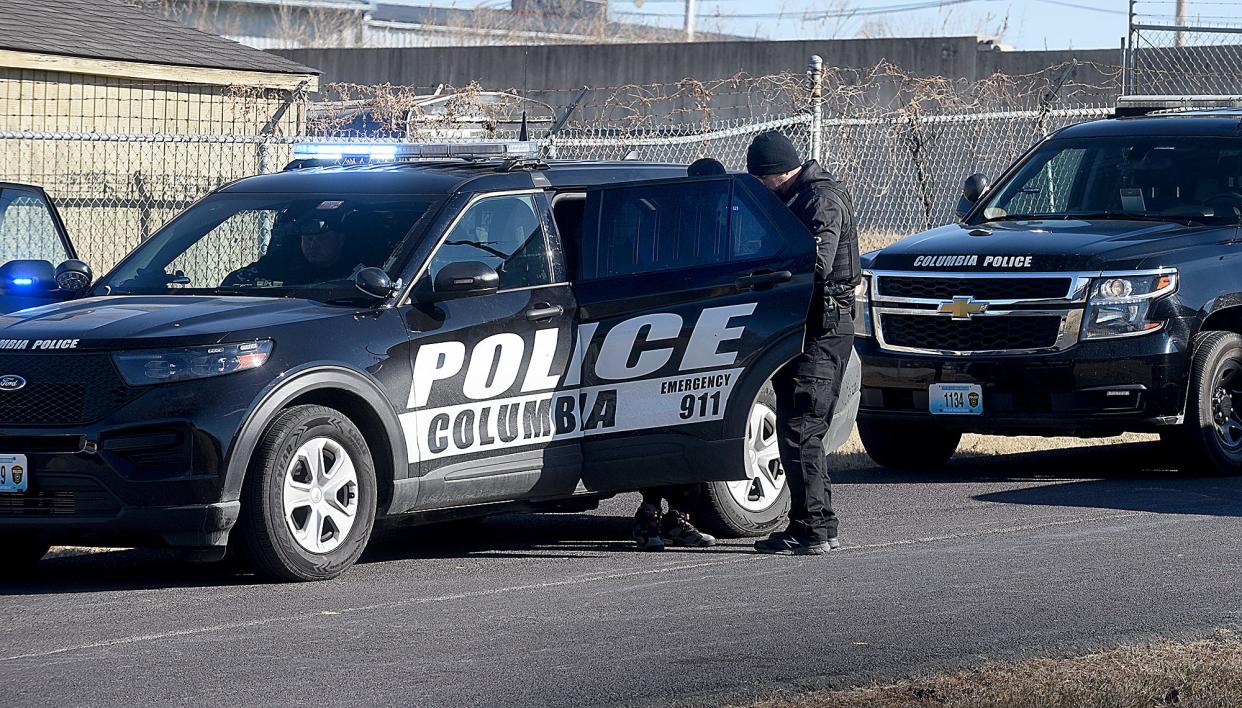Columbia City Council plans to further explore police department's vehicle stops disparity

The Columbia City Council plans to hold a special work session in two weeks for further discussion on the recently released statewide Vehicle Stops Report.
Council members provided feedback Monday to Columbia Police Chief Geoff Jones, Assistant Chief Jill Schlude and Diversity, Equity and Inclusion officer Tony Parker on the direction and questions that may come up during the June 21 work session.
Prior to Monday's council meeting, Jones provided a 60-page memo on department policies, data, cultural competence training and more with regard to vehicle stops.
"My memo to you notes a history of controversy around traffic stops," Jones said. "A population-based disparity tells a small part of the story, and I am grateful for the Vehicle Stops Committee that is helping us to learn more."
The police chief's committee continues to provide recommendations for policy improvements, training, accountability and data review, he said.
More: Here's what Boone County, Columbia law enforcement reported on the Vehicle Stops Report
"The questions I have for June 21, especially when you talk about the investigative stops, and you say no bias is acceptable in your eyes, then what is the suggestion? And I don't really know the answer," said Mayor Barbara Buffaloe.
"I have a big concern about putting too much on your DEI officer's plate. I don't want Tony to burn out. It takes more than one person."
She wants to hear more from the department's Vehicle Stops Committee, she said.
Four department policies relate to traffic stops. They are search and seizure, bias-free policing, traffic enforcement and traffic stops.
Police training and policy updates around traffic stops, marijuana
Parker's duties include auditing department policies to ensure they are fair and inclusive, Jones said, noting he was impressed by a training Parker had led.
Parker tries to keep up audience engagement.
"If you teach it the right way, it can be very enjoyable," Parker said.
Schlude, who participated in Parker's training session, came away with a greater understanding of terminology, such as microagression, she said.
"He presented that in a way that made a lot of sense to me. I walked away with a very complete meaning of what it meant. I felt offended by that term previously, so I actually learned something," she said. "It didn't have a negative connotation to me anymore."
The department's Vehicle Stops Committee provides direction to the department on how to address data collection and publication.
One policy change is de-emphasizing odor-based searches for marijuana. This change takes effect July 1.
Due to changes in state law, such as with medical marijuana, further questions will be asked to determine if a person was just around others smoking marijuana and not under the influence of the drug to determine if there is probable cause to conduct a search.
Canine officers no longer will have marijuana detection training.
These moves were lauded by the Rev. James Gray, who said while he does not smoke marijuana, he does serve and interact with those in the community who do, so an odor could be on him following those encounters.
When Jones started as an officer, the policy was to conduct a probable cause vehicle search immediately after an officer smelled a marijuana odor. Now, officers must obtain more information before conducting such a search, he said.
Finding ways to publicly report disparity data in police stops
The disparity rate for Black motorists was 3.18 in 2021. Black drivers were three times as likely to be stopped by police, when compared to their proportion of the population.
This is part of a steady decline since a high of roughly 3.5 in 2019.
Disparity rates reported to the state and those compiled by the department can be different. This is due to different census data being used in the city report compared to what is required of the statewide report, Jones said.
Removing the demonstrable, investigative stops from the data, the disparity rate reduces further to 3.07, Jones said. The 473 stops were not discretionary, noting criminal activity was involved for the purpose of the stop, he said.
The adjusted disparity, with the removal of the investigative stops, is where the department needs to explore bias concerns, Jones said.
Data collection continues and steps are underway to make it more publicly accessible, he said.
"What we have talked about recently is providing a report on traffic stops every six months," Jones said. "Better yet, if we are able to do it, we are working with IT to try and create dashboards that can be viewed in real time externally."
The department would like to get a new records management system and is searching for a new vendor as well as holding discussions with other departments in Boone County and neighboring counties, Jones said, answering a question from council member Andrea Waner.
Charles Dunlap covers courts, public safety and other general subjects for the Tribune. You can reach him at cdunlap@columbiatribune.com or @CD_CDT on Twitter. Please consider subscribing to support vital local journalism.
This article originally appeared on Columbia Daily Tribune: Columbia City Council to explore police vehicle stops report

